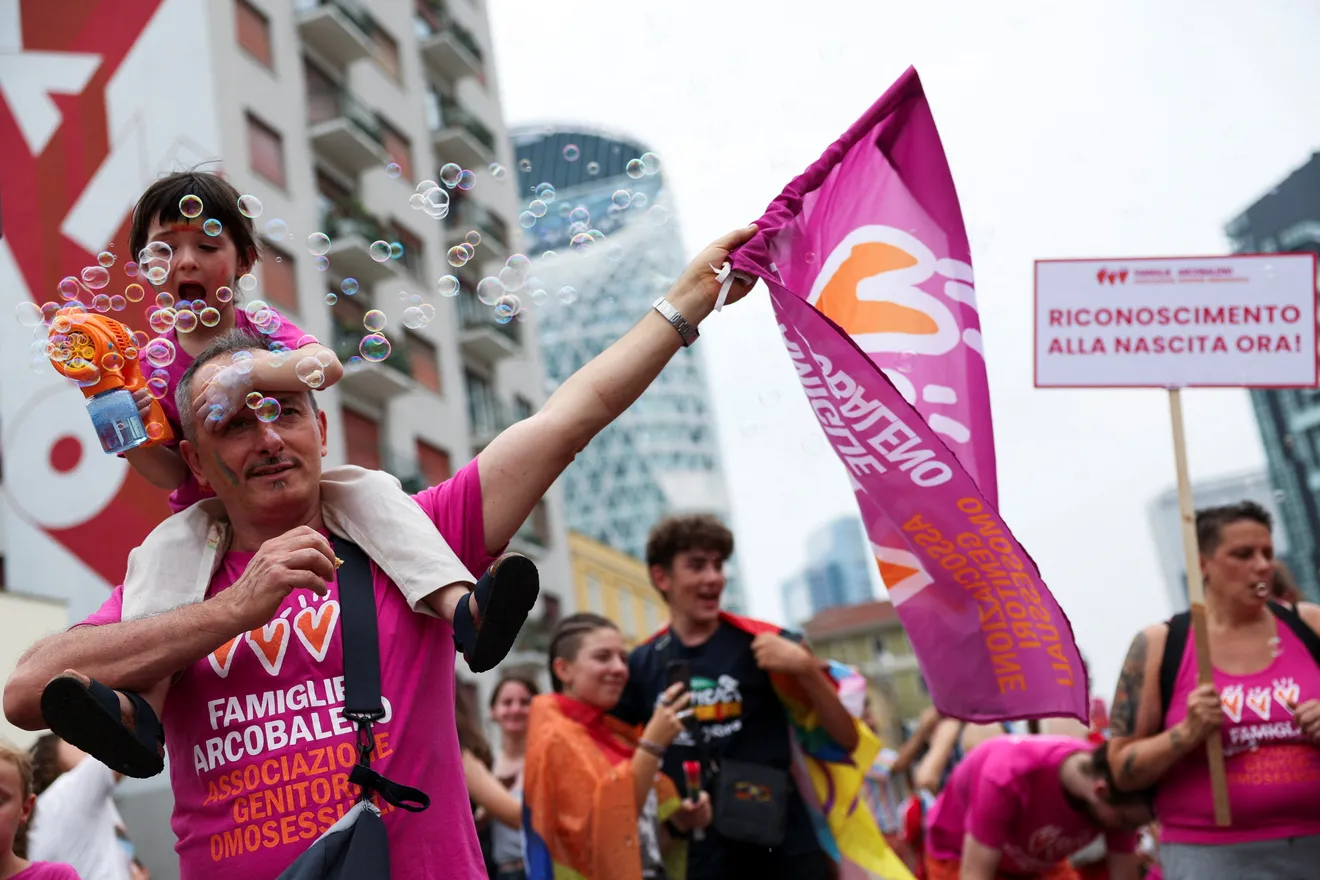LGBTQ activists and legal experts in Italy fear a new law criminalizing international surrogacy could have a chilling effect on the country’s same-sex families and their children.
Same-sex couples singled out for criminal investigation. Legal ties between gay parents and their children severed. Italian citizens jailed for a procedure that’s completely legal in other countries, the U.S. included.
“We are all in a bit of a shock,” said Yuri Guaiana, an LGBTQ activist and secretary for the Certi Diritti Association, an Italian gay rights organization. “This law feels like a joke, a very sad joke.”
Surrogacy was banned in Italy two decades ago. But the new law goes one step further by imposing criminal penalties on Italians who have children through the procedure, even in countries where it’s legal.
“Motherhood is absolutely unique, it absolutely cannot be surrogated, and it is the foundation of our civilization,” senator Lavinia Mennuni said during the parliamentary debate over the new law. “We want to uproot the phenomenon of surrogacy tourism.”

A majority of Italian couples seeking surrogates are straight – roughly 90%, Rainbow Families President Alessia Crocini told Reuters.
But some advocates say, because gay couples are easily identifiable, the law will boil down to a blanket targeting of them.
A straight couple returning from a trip abroad with a newborn child wouldn’t be under suspicion, while a gay couple, particularly two men, could immediately be singled out, according to Roberto Muzzetta, the vice president of the Milan chapter of Arcigay, Italy’s largest LGBTQ non-profit. The result could amount to a cultural “witch hunt” for gay families, he said.
The law classifies international surrogacy as a universal crime, putting it on par with serious offenses such as terrorism. Penalties could run up to two years jail time and up to $1.1 million in fines.
“The message is, ‘Not only you are the result of a crime, but you are the result of a crime equal to genocide, to trafficking, and not the result of an act of love,'” said Guaiana.
Left open by the law is what would happen to children whose parents are penalized for seeking surrogacy abroad, said Ryan Thoreson, an associate professor at the University of Cincinnati’s College of Law.
“A same sex couple comes back from the United States, where they’ve legally had a child through surrogacy,” Thoreson said. “Potentially, both of those parents are going to prison. What happens to the child?”
Equally unclear is how Italy would impose penalties on a procedure performed in countries where it is totally legal.
In several cases handling surrogacy in recent years, the European Court of Human Rights has held that the “a child’s right to respect for private life” requires a pathway to a legal parent-child relationship through domestic law.
